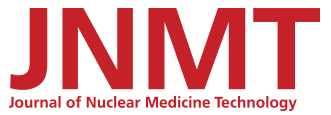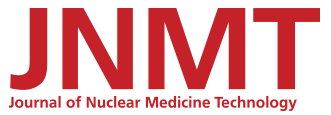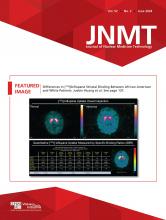Visual Abstract
Abstract
The leading cause of gastritis and its complications is Helicobacter pylori. Radioactive iodine (131I) accumulates significantly in the stomach after consumption. On this basis, we decided to determine whether different doses of 131I in the stomach would be effective in eradicating the infection. Methods: All patients with hyperthyroidism or differentiated thyroid carcinoma who were referred for 131I treatment were invited to the study. A stool antigen test was conducted before consumption of 131I (0.15–5.5 GBq) and was repeated 2 mo later to detect H. pylori infection. Results: H. pylori positivity was found in 51.8% (14/27) of the patients. At 2 mo after treatment, 13 of the 14 patients with differentiated thyroid carcinoma or hyperthyroidism who had been identified as positive for H. pylori stool antigen before 131I administration were still positive, representing a nonsignificant eradication rate of 7.1%. Conclusion: Administration of 131I to patients with H. pylori did not show potential to eliminate the infection.
Footnotes
Published online Jan. 9, 2024.
This article requires a subscription to view the full text. If you have a subscription you may use the login form below to view the article. Access to this article can also be purchased.
SNMMI members
Login to the site using your SNMMI member credentials
Individuals
Login as an individual user








